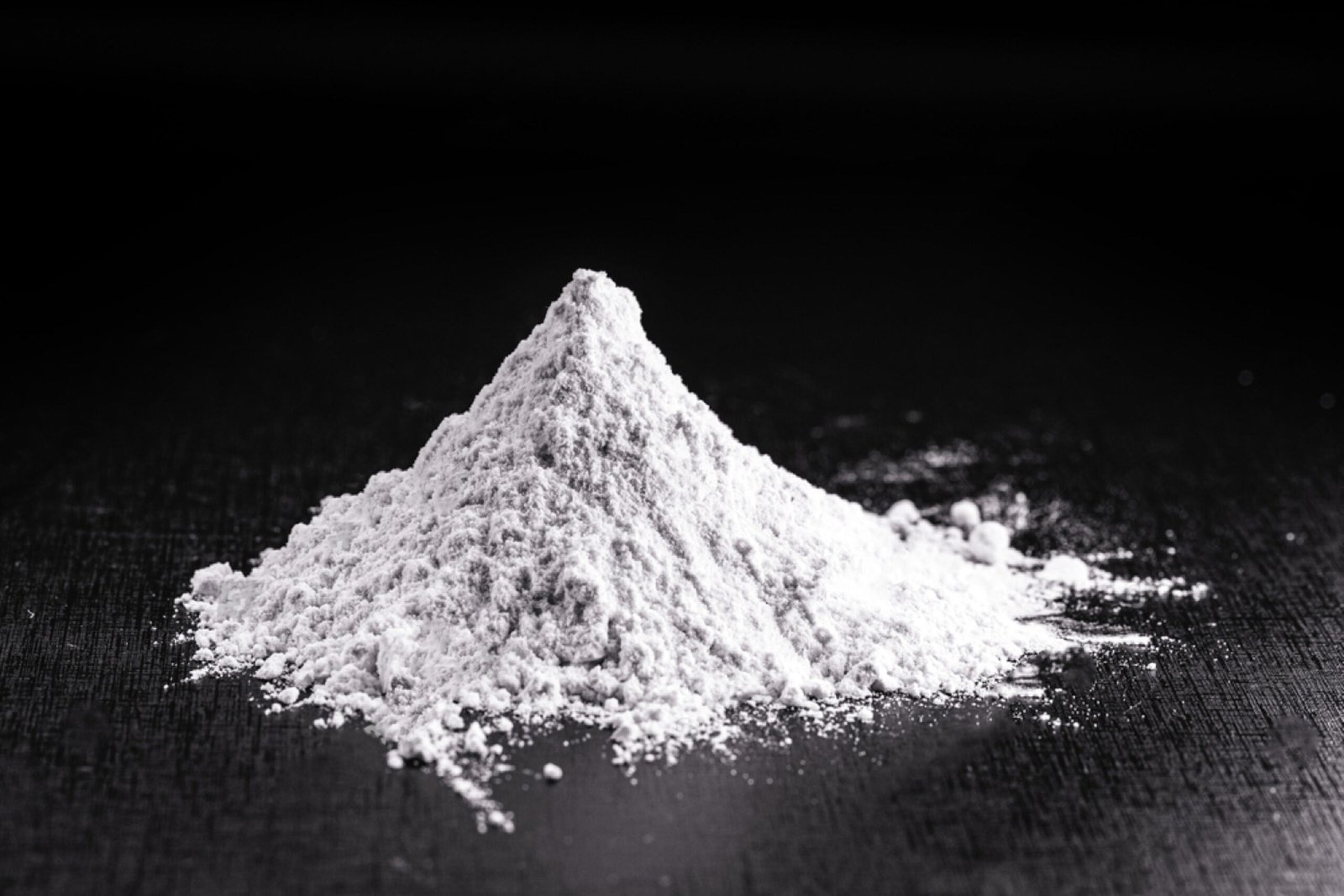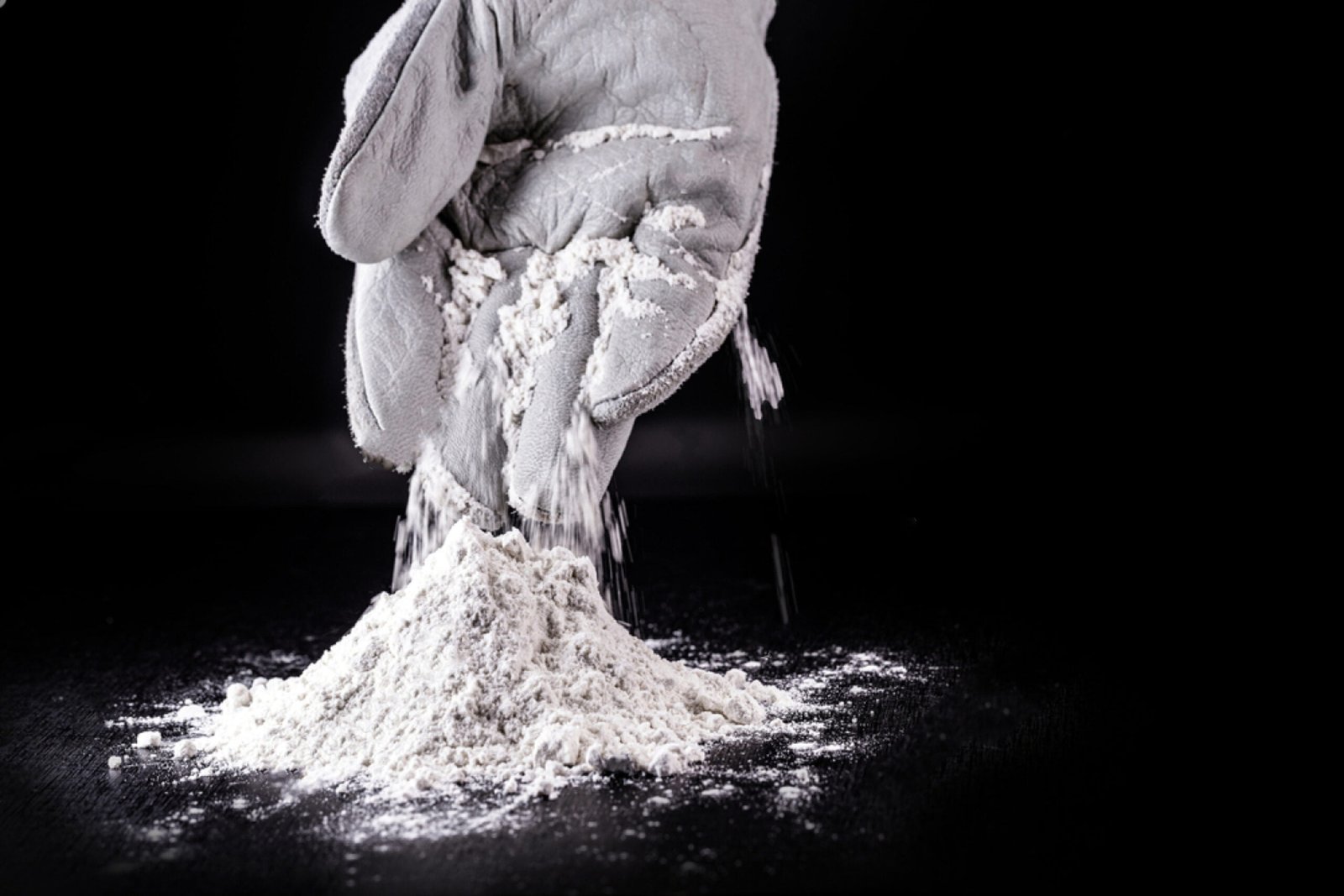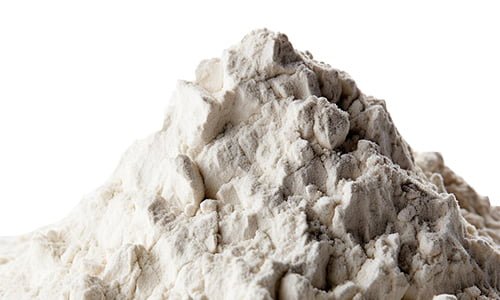About Limestone Powder
Composition:
Limestone powder primarily consists of calcium carbonate (CaCO3). It may also contain small amounts of other minerals, depending on the composition of the original limestone rock. The presence of impurities can result in variations in color and characteristics of the powder.
Limestone Powder Applications:
Steel: Limestone is used in making steel products. Limestone is added to mix with impurities in the melted iron, producing slag. The slag is separated from the iron leaving it clean of all impurities and limestone, which is then made into steel.
Plastic: Limestone is used in a wide range of plastic and elastomeric, or rubber, products. The regular and controlled shape of the limestone particles and size of these particles makes it a great filler material for the production of plastic and rubber. Fillers are used to expand expensive plastics or other materials to increase the product size without the cost. Since limestone is a non-reactive material, it is perfect for this application.
Construction Industry: Limestone powder is commonly used in the construction industry as a filler material and a component of cement and concrete. It can improve the workability and strength of concrete, acting as a partial replacement for cement. Limestone powder is also utilized in the production of asphalt and as a base material for roads and foundations.
Agriculture: In agriculture, limestone powder is used to improve soil quality and regulate pH levels. It can neutralize acidic soils by increasing their alkalinity, providing essential nutrients to plants. Limestone powder is often applied to agricultural fields as a soil amendment to enhance crop productivity and promote healthy plant growth.
Manufacturing: Limestone powder finds applications in various manufacturing processes. It is used as a filler in the production of paints, coatings, plastics, and rubber products, improving their durability and enhancing their properties. Limestone powder is also utilized in the manufacturing of glass, ceramics, and paper.
Neutralizer:
Limestone can be added to water to remove impurities and pollutants. Since limestone is primarily made of calcium carbonate, a base substance, it can be used to neutralize acidity in industrial waste and run-off. Limestone can also be used to reduce soil acidity for agriculture.
Environmental Applications: Limestone powder plays a role in environmental applications as well. It is used in flue gas desulfurization (FGD) systems, where it reacts with sulfur dioxide (SO2) emissions from power plants to reduce air pollution. Limestone powder can also be used in water treatment processes to adjust pH levels and remove impurities.
Other:
Limestone powder can be used in pigment-making and as a filler for more expensive paints. Paper is also manufactured using limestone. Wood is treated with acid to help break it down, which is then treated with limestone to neutralize the acid and whiten paper. Limestone is also used in dyes and carpeting or other floor coverings, such as protective resins and coatings.






